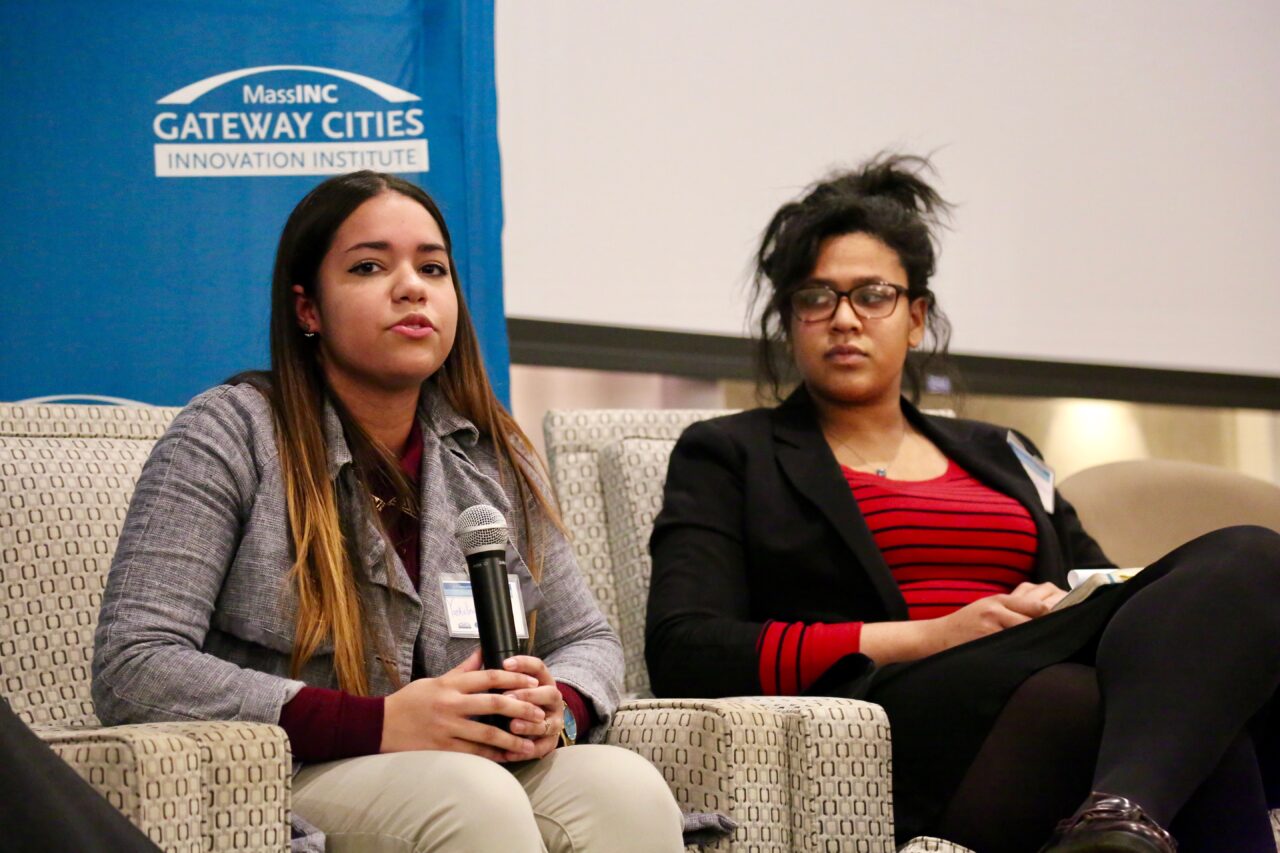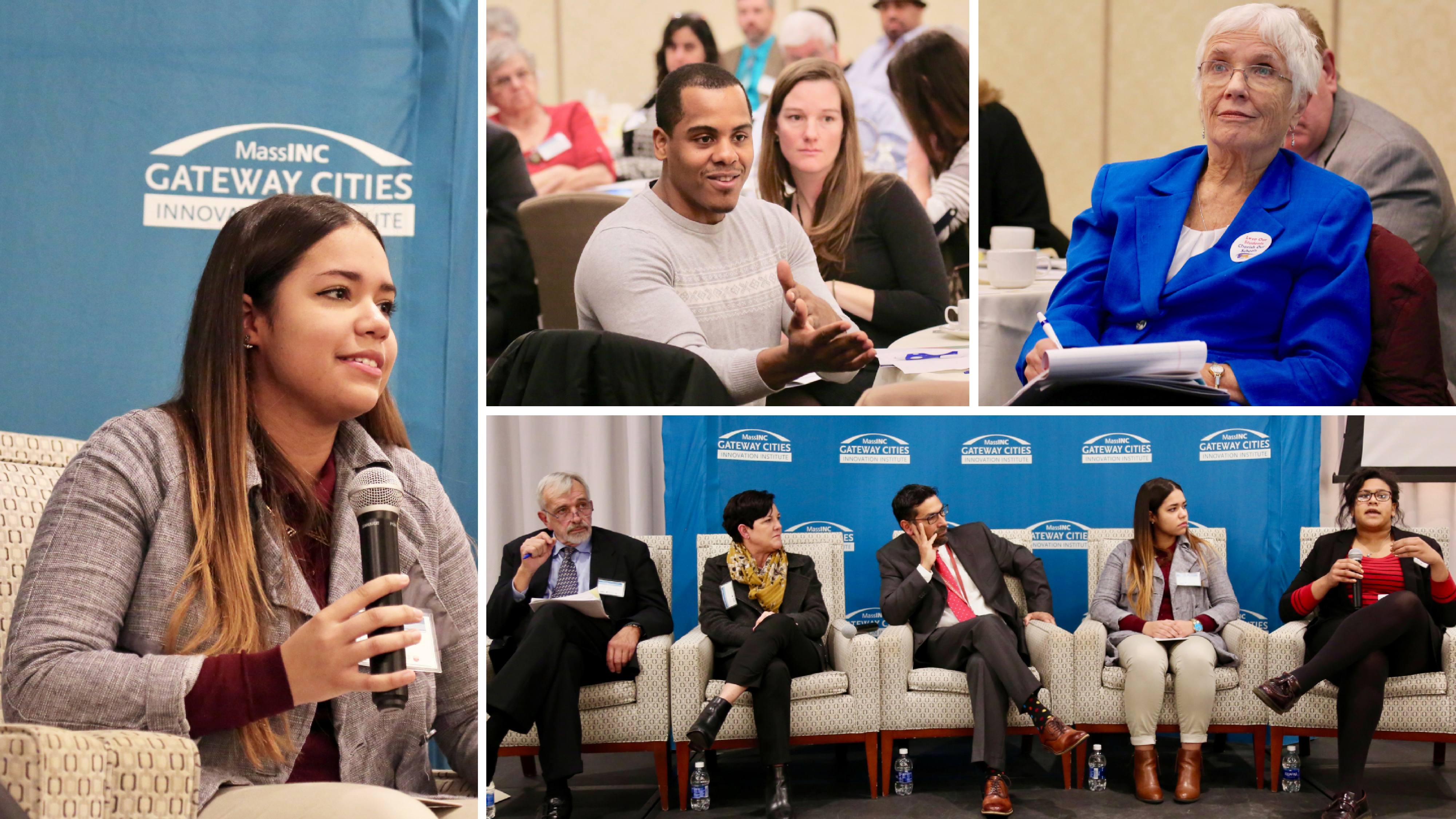Gateway City leaders from the Merrimack Valley gathered yesterday for a conversation on the power of education accountability, and how change brought about by the impending implementation of the Every Student Succeeds Act (ESSA) can help advance the Gateway City vision for educational excellence. While many themes similar to those surfaced in Worcester were discussed, here are some new angles/takeaways that emerged:
- Post-secondary success. We need to get better at defining how we want students prepared to be future ready and build our accountability system to advance these long-term outcomes. Many believe that a measure of post-secondary success, such as remedial coursework or college enrollment and persistence, could offer meaningful progress on this front. Like in Worcester, others suggested school climate measures providing an indication of how well schools are advising and supporting students in developing skills to navigate their future could make a meaningful difference.
- School climate/cultural competency. Measures that help demonstrate cultural competency among students would capture the value Gateway City schools offer providing inclusive learning environments where students are constantly exposed to peers from different backgrounds. While there has been some concern that Gateway City schools might have greater difficulty comparing favorably to more affluent schools on some important measures of school climate, this is seen as an area where Gateway City schools could excel.
- Parent engagement. The data we collect should be a tool for inviting parents into what’s happening at school and engaging them in school improvement efforts. For this to happen, the data must be presented in a far more accessible manner. The language and terminology must make sense to parents. An effort to think about how we translate state assessment data more effectively is also an opening to consider how communities present data on progress toward meeting locally-determined strategic learning priorities.
- Innovative assessment. Lowell is at the forefront of the innovative assessment movement. Paul Georges, the President of the United Teachers of Lowell, has played a leadership role in the Massachusetts Consortium for Innovative Education Assessment and Superintendent Salah Khelfaouii is a co-chair of the initiative. Innovative assessment is critical to Gateway City schools because it allows instructors to capture skill gains, particularly growth in social-emotional skills, that might not be evident on traditional standardized tests. For schools educating large numbers of newcomers and students with special needs, identifying and recognizing these forms of student growth are central to improving outcomes and correctly recognizing the contributions that educators are making to student success.
This is our best effort to summarize a very rich conversation. For those who were unable to join us, the videos below capture each segment of the program in full.
You can also download our PowerPoint presentations (MassINC & DESE). We particularly encourage you to check out all of the thoughtful comments leaders provide for us in writing. They provide a very good sense of both their aspirations for accountability and their eagerness to engage in these policy conversations.
Based on the urging of those in attendance to find ways to keep this dialogue going, we plan to organize weekly conference calls beginning next Friday to keep people abreast of developments and help unify Gateway City leaders around core priorities and messages. We hope that you will join us on these calls.
Thank you to our partners, Project Learn, the Lawrence Partnership, the Department of Elementary & Secondary Education, and all of the Merrimack Valley leaders who made this important dialogue possible.
Read reporting on the event from
the Lowell Sun
 Experts: Look beyond scores to measure school success in cities like Lowell
Experts: Look beyond scores to measure school success in cities like Lowell
A thinktank that co-sponsored the forum, the Massachusetts Institute for a new Commonwealth, or MassINC, is helping gateway cities and school leaders take advantage of the new education act as a way to advocate for their school districts.
A MassINC report on ESSA shows the challenges that Lowell and other gateway cities face. An average of two-thirds of students in such districts are from low-income families, a major increase from 2002, and claim a disproportionate share of students who are foreign-born or do not speak English as their native language, according to the group.
Announcing a Weekly Strategy Call to Help Gateway City Leaders Coalesce on ESSA
Beginning 2 pm on Friday, January 20th the Gateway Cities Innovation Institute will host weekly strategy calls for leaders interested in helping to develop and advanced shared ESSA priorities. Register to join these WebEx conference calls by following this link.

